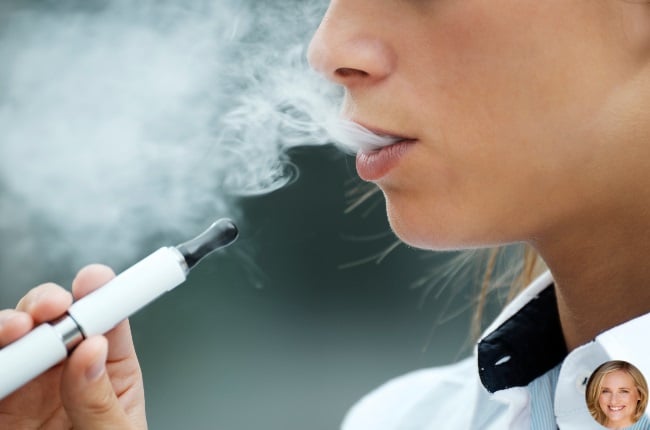
Of the world’s 1,1 billion smokers 60% want to quit and many resort to e-cigarettes in the process, according to research by the World Health Organisation.
These smokers believe e-cigarettes, hubbly- bubblies and vaping aren’t nearly as damaging to their health as cigarettes – but why then do they have to pay so much more in insurance premiums than nonsmokers?
This week we answer questions about smoking and insurance premiums.
Q: Why do smokers pay higher premiums than nonsmokers?
A: Smokers in general have a shorter life expectancy than nonsmokers because smoking increases your risk of developing health problems such as cancer, heart disease, stroke and lung diseases.
Because smokers’ chances of dying are statistically higher they’re more risky to insure, so their premiums are more expensive.
It’s not true though that people are refused insurance simply because they’re smokers.
Q: How much do the premiums of smokers and nonsmokers differ?
A: Smokers pay easily double the premiums of nonsmokers. There are several factors that contribute to an individual’s premium, including age, gender, health status and lifestyle.
Here’s an example from financial services company BrightRock of the premiums someone will pay at various ages as a smoker and nonsmoker.
Laura is a graduate employed in an admin post and earns about R30 000 a month.
She applies for R1 million in life cover at equalised premiums, which means her cover and premiums will remain constant – they won’t increase as she gets older or if her health deteriorates.
If she applies at age 30, her monthly premium would be R210 as a smoker and almost half that, R111,12, as a nonsmoker.
If she applies at age 40, her monthly premium would be R371,37 (smoker) and R188,99 (nonsmoker). At age 50 it would be R767,27 (smoker) and R357,91 (nonsmoker).
Q: Why are smokers’ rates applied for the consumers of e-cigarettes?
A: Most insurers put the same loading on premiums for consumers of e-cigarette as smokers of conventional tobacco products.
One reason is that e-cigarettes turn chemicals, including nicotine, into an aerosol that’s inhaled by the user. So it still contains small amounts of nicotine and other harmful substances.
Another reason insurers charge the same premiums as for smokers is because e-cigarettes are relatively new on the market and not enough research has been done on their long-term health risks.
Available research does show that users of e-cigarettes have a higher risk of chronic cough, bronchitis and asthma.
Smokers of e-cigarettes are apparently also more susceptible to respiratory infections and poor cardiovascular health.
Q: What if you’re vaping because you want to quit smoking?
A: New clients are asked whether they smoke or use other nicotine products apart from cigarettes, such as cigars, pipes, hubbly-bubblies, e-cigarettes or nicotine chewing gum.
If a client has used one of these products in the 12 months before their application, smokers’ rates will probably be charged, says Clyde Parsons, executive actuary from BrightRock.
This is because smokers tend to resume the habit within 12 months of giving up.
Q: How do I get a nonsmoker’s premium?
A: It varies between insurers but usually if you haven’t smoked or used nicotine products for 12 months you can apply for a nonsmoker’s premium.
Some life insurers require longer periods (24 months) or shorter periods (six months), so check with your insurer.
The longer waiting period is partly to ensure the policy holder doesn’t slip back into the habit or develop a smoking-related illness.
A smoking-related cancer, for example, could develop later when the person no longer smokes. You also have to sign a nonsmoker declaration and do a nicotine test.
This is done by a pathologist and reveals the nicotine levels in your body. If the test result is negative it could reduce your premium by half, Parsons says, but it will also depend on your age and health status.
Q: What if I already had insurance and then started smoking or vaping?
A: Insurers generally require you to inform them if you’ve started smoking, vaping or using e-cigarettes.
If you don’t, and it’s a policy requirement, insurers are within their rights to decline a claim on the basis of non-disclosure.
The same applies when you apply for insurance but aren’t truthful about being a smoker.
The insurer could be lenient and pay out, but less than the claim because you haven’t been paying the premium you should have.
GET MORE ADVICE HERE
- www.who.int – you’ll find a range of health information on this website about e-cigarettes and tobacco use.
- Financial advisers and brokers: www.fpi.co.za and www.fia.org.za




 Publications
Publications
 Partners
Partners

















